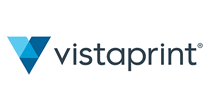The Community Jobs I Interviewed for in 2015 – and Why None of Them Were a Fit

Credit: John Morton (CC BY-SA 2.0)
In 2015, I interviewed for four different jobs. I had loose discussions about a few other opportunities and turned down interest from a really big company.
None of these jobs were a fit. But I couldn’t have known that without going through the process. The fact is, after I went through the interview process for these four jobs, there was only one that I actually wanted.
It can be a real struggle to find a role that ticks off the important boxes, especially for a senior or executive-level community professional, who wants to stay in the industry. I haven’t really seen any experienced professionals in our space talk about the interviews they have gone through, for the jobs they didn’t accept – or didn’t get offered. I’m happy to share my experiences over the last 12 months.
Interview #1
The first interview of the year was with a startup that had raised a reasonably-sized seed round. It was a social app co-founded by a couple of guys who had some previous startup experience (no companies you’d recognize).
I first came to know one of the co-founders because he asked me for some advice, and I spent a few hours talking with him (for free, not consulting) over the phone and via email. We had a good rapport and, if I recall, he mentioned to me that they were looking to make a community hire. I explained what I was looking for, and we agreed to explore it.
This prompted a series of telephone interviews with both him and the other co-founder. They all went very well, and they flew me out to San Francisco for an all-day interview. It was basically a strategy session. They would ask a question or propose a problem, and I would suggest solutions. I thought the in-person meeting was really productive. There were a couple of areas where we disagreed on strategy, but it wasn’t anything serious. Nothing of an ethical nature, just reasoned disagreement.
I flew home with mixed feelings. The app itself and the idea behind it were interesting, but I didn’t see it as unique or revolutionary as the founders did. I thought it had potential, with the right strategy, otherwise I wouldn’t have been interested at all. I felt like the co-founders and I had a pretty good vibe, and that was driving my interest. If they really wanted me, I felt like it was a role I could get into.
They were slow to follow up, which is never a good sign. Eventually, we set up a call and what it came down to for them was that they weren’t committed to true community strategy. They didn’t want to set any sort of structure for the community, they wanted the community to dictate a structure to them. Which is not a great way to build community. If you stand for something, you have to back that with action, otherwise it means nothing.
This wasn’t a situation where I would be empowered to lead. I think it was just a case of them not knowing what they wanted, and they have since pivoted their startup.
Interview #2
I came across a senior community manager position at a company I was quite familiar with. They operate in an online marketplace within a specific vertical, that connects companies and vendors. They are very well-known in their space. They are a mature company that employs hundreds and has taken more than $25 million in funding.
The role itself wasn’t completely what I was looking for. But, due to my familiarity with the company, I decided to check my connections and see if I knew anyone over there. As luck would have it, an old friend of mine was directly connected to a recruiter at the company. He introduced me and we began talking about the type of role I would be interested in. Director-level and responsible for community efforts.
Our email and telephone conversations went great, and then I had a phone interview with the person who would have been my boss. That call was excellent. After that, I drove up to their offices for a morning interview with four different people. My would-be boss, a community manager and two people in marketing that I would be working with.
3 of interviews went great. I really liked the person who would have been my boss, I think I could have worked well under him and learned from him. The community manager was great, as was one of the marketing folks. However, my interview with the marketing director was probably one of the most surreal experiences of my entire career. I wrote about it in detail on my personal blog.
To summarize, she looked down at my resume, looked up at me, made a face and asked me why I would possibly think that I deserved to be at her level. That was fun and a pretty good indication of how the interview would go. It was really odd, hostile and confrontational. But I was proud of how I handled it. I answered her questions, respectfully and calmly.
 The highlight was when she was explaining to me how, unlike me, she had paid her dues. To illustrate this, she said: “I worked at Vistaprint – maybe you’ve heard of them?” I know that sounds ridiculous. It doesn’t seem possible to arrange words in that order to form a sentence. But those were her exact words, and she was serious.
The highlight was when she was explaining to me how, unlike me, she had paid her dues. To illustrate this, she said: “I worked at Vistaprint – maybe you’ve heard of them?” I know that sounds ridiculous. It doesn’t seem possible to arrange words in that order to form a sentence. But those were her exact words, and she was serious.
At any rate, I completed the interview and had a nice, 5 hour long drive home to think about the day. By the time I arrived, I had come to a conclusion: the marketing director had soured me on the job. One reason I have remained independent all these years is that I thoroughly dislike office politics. If I am getting a whiff of this sort of behavior now, before I’m even hired, I could only imagine what I would have to deal with if I took the job.
I didn’t wait to hear their decision. The recruiter asked me how it went, and I told him. Great, except for the marketing director and, if she had any input into my work, I wasn’t interested in the job. And that was that. I felt like I dodged a bullet.
Interview #3
There was a job that really piqued my interest, working at an organization funded by a grant, on issues that I am both very knowledgeable and very passionate about. It is a partnership between a few different organizations, and I know one of the people heading up the effort at one of those organizations. I asked my friend for an introduction, and I began chatting with the head of the project.
Our conversations were great and that led to an interview with both him and another person at one of the partner organizations. I was very happy with the interviews, and the people I would be working with. Not only that, but I believed in the mission and felt I was well-suited to their requirements. After completing the interviews, I wanted the job. It was the one role, all year, that I explored that I actually was excited about after I had gone through the process.
Unfortunately, I wasn’t what they were looking for. It was disappointing, but that’s how it goes sometimes.
Interview #4
The final interview was with a company that had successfully launched a product on Kickstarter, to the tune of hundreds of thousands of dollars. It was a premium product aimed at creative people. I happened to catch their job posting through an AngelList alert, and it was for a community manager. Not really what I wanted, but I was struck by their description of the type of person they wanted to hire. It sounded just like me. I really matched the extra-curriculars they listed.
I decided there was no harm in dropping them a note and letting them know what I was looking for. Positive emails led to phone calls with both co-founders. The first call, with the co-founder I had been emailing with, was excellent. We clicked, and it seemed like I was even opening his eyes a bit to the true power of community for their product.
But the call with the second co-founder was really a letdown. Where I talked about really high level, interesting stuff with the first co-founder, and I could sense his enthusiasm, the second co-founder just didn’t have the same passion. He was 15 minutes late, then re-scheduled, then we spent 20 minutes talking about forum software, after which he said he had to go. His questions were just so basic.
After my initial follow-up, they said they would follow up after they had a chance to talk. They never did. I thought about following up again, but decided it was probably for the best. I left the second call disappointed, and if they aren’t professional enough to let me know their decision, I don’t really care what it is.
The Issues
When I reflect on these four interviews, I can identify a few key issues that made me lose interest in the jobs.
- My potential bosses lacked a strong commitment to community (job #1).
- I didn’t like who I would have to work with and felt office politics were unavoidable (#2).
- I didn’t feel respected (#2, #4).
- I didn’t find the role challenging (#1, #4).
Of course, there are other reasons why you might not be interested in a job. Some of mine: it doesn’t represent advancement, it offers poor compensation, a geographic location that isn’t ideal, a lack of workplace flexibility or a product I don’t find interesting. I’m willing to compromise on some of these – but not all of them.
When you are considering opportunities, you have to decide what you want, and what you’re willing to settle for. Since I am single and have no kids, I have no one depending on me to live. I don’t need a job, and even though I really want to find a great opportunity, I’m also perfectly happy doing what I do now. If a job has a glaring issue, I can pass on it. But not everyone can.
If You’re Hiring

Credit: Egan Snow (CC BY-SA 2.0)
Unfortunately, when it comes to the first 3 issues I mentioned, the problems are beyond my control. They are tied to the people I’m talking to. If my potential boss lacks a true commitment to community, and only wants to pay it lip service, I’m not going to take the job on the pretext that I can maybe, possibly, hopefully convince them one day.
If I find the workplace to be poisonous or one of my key co-workers to be awful, there’s not going to be much I can do about that for a long time. I’m the new guy. Plus, the fact that they are already hired and allowed to treat people this way does not speak well of the company I would be going to.
If I don’t feel respected, there’s really nothing I can do. If I share that sentiment with them, it’ll just disqualify me from the job. No one wants to think they aren’t being courteous and, more importantly, a person they don’t really know carries no weight in swaying their opinion. They are far more likely to turn it around on me and say I am difficult or mercurial.
If you’re hiring, these 3 issues are all ones that you need to have in order, before you start trying to hire someone, if you want to find an experienced, high-level professional.
In this case, the fourth issue is on me. I have to sort through the roles to make sure I find something that is professionally challenging. I have to ask the right questions. With two of the jobs here, I reached out to a company that was hiring for a role I didn’t find high-level enough, to see if they would be open to making it something more interesting to me. While they were both open to it, I found that neither was willing to make the commitment. Which is absolutely their choice, and I appreciate them taking the time to speak with me.
With that said, if you are looking to attract an experienced professional, you have to be willing to give them responsibility, autonomy and problems that will challenge them.
If You’re Looking for a Job
Advancing in any industry is a challenge. Think of jobs as a pyramid. The higher you go, the smaller the pyramid gets. The higher you go in an industry, the less jobs you’ll find exciting. Community is a relatively small discipline, which means there are less jobs available than many other professions. For those of us who both want to advance, and continue to stay in the industry, this means there are a relatively small number of opportunities available.
The community professional skill set intersects with other job functions, some of which could fall under a community department, and some of which might live somewhere else. Like marketing, communications, customer support, customer success and education, integrity and trust, and safety.
Jobs are out there. This is still an industry on the rise. But you have to identify the job characteristics that matter to you, and pursue them. When you find the right opportunity, don’t doubt yourself. Take it. Good luck.
